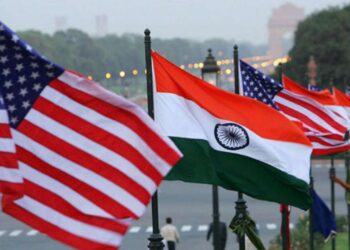New Delhi, April 2025 – In a move that has reignited fierce political debate across India, the Enforcement Directorate (ED) has formally charged Congress leaders Sonia Gandhi and Rahul Gandhi in a money laundering case linked to the now-defunct National Herald newspaper. The charges, which centre around the alleged misuse of party funds to acquire property assets, have been described by the Congress party as “a politically motivated assault on democracy.”
According to the ED, the case pertains to the transfer of assets from Associated Journals Limited (AJL)—the original publisher of the National Herald—to Young Indian, a company in which both Sonia and Rahul Gandhi hold majority shares. Investigators allege that the transaction, carried out over a decade ago, allowed the Gandhis to effectively take control of property worth approximately ₹2,000 crore (around $300 million) without paying for it, by converting party loans into equity.
What the ED Claims
The ED’s charges stem from an older complaint filed in 2012 by Subramanian Swamy, a BJP politician, who claimed that Congress party funds—meant for public and political use—were diverted to a private company controlled by the Gandhi family.
In its investigation, the ED alleges that the Congress gave AJL an interest-free loan which was never repaid. Instead, AJL’s debt was allegedly converted into equity and transferred to Young Indian, thereby handing control of the publishing house’s extensive real estate portfolio to the Gandhis.
The agency maintains that this amounts to money laundering under the Prevention of Money Laundering Act (PMLA) and has named both Gandhis as accused in the chargesheet filed this week.
Congress Dismisses Allegations as Political Targeting
The Indian National Congress has vehemently denied all allegations, calling them “fabricated” and part of a broader campaign by the Modi-led government to silence political dissent. Congress leaders argue that Young Indian is a not-for-profit company, and that there has been no personal enrichment or illegality involved in the transaction.
“This is a desperate attempt to malign our leaders before the general elections,” said Congress spokesperson Pawan Khera at a press conference on Wednesday. “There is no wrongdoing, no corruption, and no personal benefit. This case is being weaponised by the BJP to distract from its governance failures.”
Senior leaders like Mallikarjun Kharge and Priyanka Gandhi Vadra have also come out in support of the accused, questioning the timing and intent behind the chargesheet.
Political Fallout and Nationwide Protests
The ED’s move has triggered a wave of protests across several Indian states. Congress workers hit the streets in Delhi, Maharashtra, and Karnataka, burning effigies of Prime Minister Narendra Modi and demanding a halt to what they describe as “state-sponsored harassment.”
Many opposition parties, though cautious in their public statements, have privately expressed concern over what they see as an alarming trend of using federal agencies to target political opponents.
Political analysts note that this development comes at a time when the BJP is already ramping up its campaign for the upcoming general elections. “This case serves the dual purpose of weakening the Congress’s top leadership while also energising the BJP’s base,” said political commentator Sunetra Chaudhury.
BJP Stands Firm
Unfazed by the backlash, the ruling Bharatiya Janata Party (BJP) insists that the law must take its course. Speaking to the media, BJP spokesperson Sambit Patra said, “No one is above the law—not even the Gandhis. If there is wrongdoing, it must be investigated. This is not political targeting. It is justice.”
The BJP has maintained that the Enforcement Directorate is an independent body and that the charges are based on evidence gathered through due process.
A Long-Simmering Case
The National Herald case has been simmering for over a decade, often surfacing during politically sensitive times. The original complaint by Subramanian Swamy gained traction under the Modi government, which has significantly empowered investigative agencies like the ED and the CBI.
While the ED has conducted multiple rounds of questioning in the past, this is the first time formal charges have been filed against Sonia and Rahul Gandhi in the matter. Legal experts suggest the case could drag on for years, but the political impact may be immediate, especially if the court admits the chargesheet and frames formal charges.
What Lies Ahead?
The case will now move to the next stage in court, where a judge will decide whether the matter proceeds to trial. If found guilty, the charges under PMLA could result in substantial fines and imprisonment, although both Gandhis have consistently denied any wrongdoing and are expected to challenge the charges legally and politically.
In the meantime, Congress is expected to use the incident to galvanise its base and portray its leaders as victims of political vendetta. The party has already called for a nationwide protest and plans to raise the issue in Parliament when it reconvenes.
Final Word
The filing of money laundering charges against Sonia and Rahul Gandhi marks a dramatic escalation in India’s political landscape, adding another layer to the already fraught relationship between the ruling BJP and the Congress. As the country prepares for elections, this case could shape both public perception and party fortunes—depending on how the legal and political narratives unfold in the coming weeks.
Whether this is a legitimate pursuit of justice or a strategic political manoeuvre, one thing is certain: the stakes have just been raised in India’s political arena.











